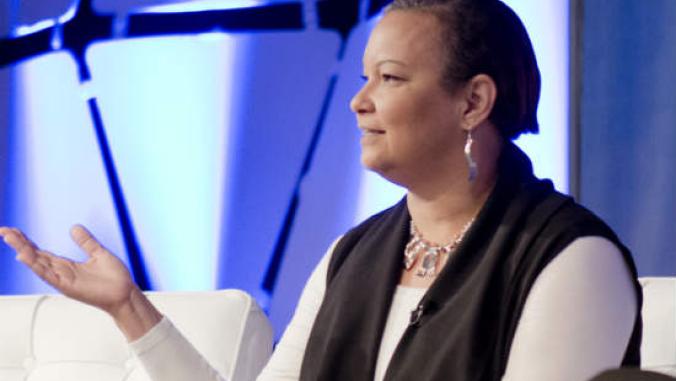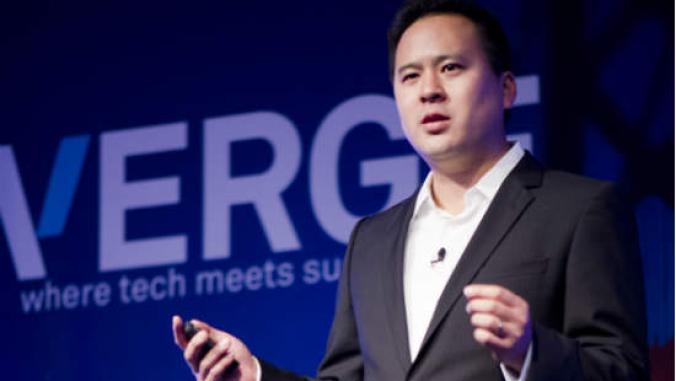The Future of Innovation: Be Positive, Disrupt and Go Mainstream
<p>Twenty years ago, Forum for the Future started the Fairtrade labeling program in the U.K., starting with one chocolate bar and eventually growing to more than 3,000 products.</p> <p> <meta charset="utf-8" /></p>

Twenty years ago, Peter Madden helped create the Fairtrade labeling program in the U.K., starting with one chocolate bar and eventually growing to more than 3,000 products.
"We thought we were going to change the world through products and brands...In many ways I think we've been riding that wave ever since in the environmental and sustainability movement," said Peter Madden, CEO of Forum for the Future. However, in recent years, he said, "I'm more and more convinced that they're not enough."
Wrapping up the end of the GreenBiz Innovation Forum, Madden brought the reality of what businesses and the world are facing into perspective.
"We know that the climate is changing at a rate, a speed far beyond anything modern humanity has ever experienced," he said. To face that, sustainability needs to be scaled up and make big changes to systems.
In that light, Forum for the Future has adopted three key tactics in its work: positive futures, disruption and mainstreaming.
The concept of positive futures is to provide balance to the negativity and bleakness posed by most scenarios of where the world is headed. "That fear actually stops some people from listening and coming on board," Madden said.
So, Forum for the Future brings other realistic and aspirational possibilities to companies to inspire them. When working with Levi Strauss, Madden said, Forum showed the company two futures: One in which the world of fashion slowed down, and one in which it got more high tech, but both possibilities focused on what could be done to solve sustainability issues.
The idea behind showing positive futures, he said, is to help companies figure out what products and services would work in those worlds.
Disruption, meanwhile, is about creating products, concepts and systems that change how things are done. In many cases, though, small companies have disruptive ideas, but not the ability to scale them up. Big companies have the scale, but no desire to disrupt.
"The companies that have the power quite like the status quo," Madden said.
On that front, Forum created a program called Gatecrasher to bring different industries, small companies and "people on the fringe" into the energy industry by coming together and hammering out workable ideas.
Going along with the need to disrupt on a large scale, mainstreaming, Madden said, is about making sustainability the default option.
To get there, measurements and education are needed. Forum developed a life cycle assessment tool that lets companies perform "quick, but rigorous" assessments of products and processes. Some companies, Madden said, will only release products that get a certain score from the assessment.
On the education side, Forum created sustainability modules for different industries like engineering and fashion. And now, engineers that are educated in the U.K. must complete a sustainability module.
"We should be seeing that," Madden said, "For every key profession."





